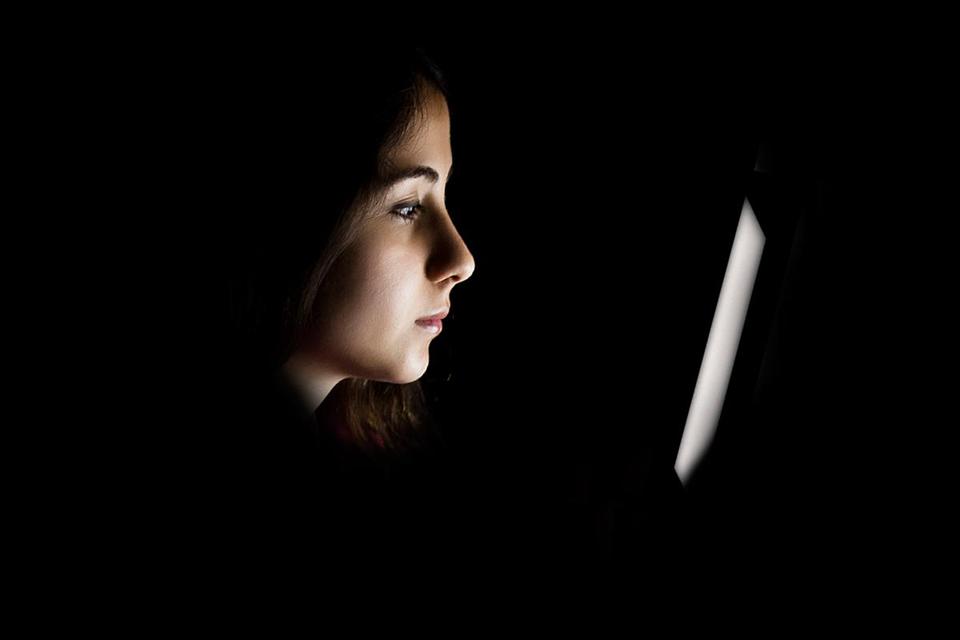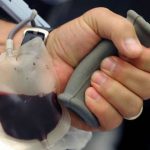You might want to think twice about curling up with your cellphone, iPad, or laptop at bedtime.

Reading on the light-emitting screen suppressed the sleep hormone melatonin, researchers said.
Researchers from Brigham and Women’s Hospital reported Monday that people who read a book on a glowing screen before bedtime took longer to fall asleep and felt less alert the next morning, compared with when they read a printed book.
Reading on the light-emitting screen suppressed the sleep hormone melatonin and shifted the body’s natural sleep-wake cycle, the researchers said.
It seems that use of these devices in the evening before bedtime really has this negative impact on our sleep and on your circadian rhythms, said Anne-Marie Chang, a neuroscientist at the Brigham who led the work and who recently moved to Pennsylvania State University.
Sleep — or people’s inability to get enough of it — has been getting increased attention as a public health problem in recent years. The effects of screens are of particular concern for adolescents and teenagers because they both use the devices a lot, and younger people might be more sensitive to their effects, according to unpublished research by another team.
The new work, published in the Proceedings of the National Academy of Sciences, is the latest addition to a growing body of research suggesting that devices with backlit screens that emit blue light — like the ones on the devices that many of us keep within arm’s reach around the clock — have real effects on sleep.
Chang said the results suggest putting away glowing devices an hour or two before bedtime and reading on printed books or screens that are not backlit. Some e-readers, such as the Kindle, do not emit light — meaning that like a traditional book, they require an external light.
The results come at a time when it has become clear that sleep problems aren’t merely a matter to be solved with caffeine the next day but could be a risk factor for such chronic illnesses as diabetes and cardiovascular disease. Dramatic shifts to circadian rhythms, such as night shift work, have been classified as a possible carcinogen for years.
Given the proliferation of screens in people’s lives, the researchers wanted to see if they might have an effect on people’s sleep.
In the study, Chang and colleagues brought a dozen people into the laboratory, where they were to live for two weeks. In the evening, they asked the subjects to read for four hours — sometimes on a traditional printed book and other times on an iPad.
At 10 p.m., the study subjects went to bed, while the researchers closely monitored them. People fell asleep later when they had read on screens. Their circadian rhythms were delayed, and the sleep hormone melatonin, which naturally rises in the hours before bedtime, was suppressed.
To their surprise, people who read on a screen were also sleepier and less alert the next day than those who read a printed book, even though they slept the same number of hours.
Outside researchers urged caution in interpreting the results because of important differences between the controlled laboratory setting and the real world. But there was wide agreement that the type of short-wavelength blue light emitted by glowing e-readers, cellphones, and laptops has alerting effects and that the best practice is to try to avoid using such devices right before bed.
In 2012, Mariana Figueiro, a professor at the Lighting Research Center at Rensselaer Polytechnic Institute, found that people who used a tablet at night had suppressed melatonin levels after two hours of usage. Unpublished research from her laboratory suggests that the effects are twice as strong in high-school-age teenagers compared with people in their 20s, raising particular concern for a generation that might sneak cellphones into bed with them.
But she and others stressed that screens are only part of the problem.
I think we are in a sleep-deprived society for a variety of reasons, and getting too much light in the evening is one factor, Figueiro said.
The experiment also might not be indicative of what happens in real life because of the fact that research participants were living in the laboratory and therefore had low exposure to natural sunlight. The low light of a laboratory environment could have made them more sensitive to the light exposure from the screens.
For someone in no greater than room light all day, this e-book reader at night is going to be much more potent than if somebody had been outside at all during the daytime, said Jamie Zeitzer, assistant professor in psychiatry and behavioral sciences at Stanford University, who was not involved in the study.
Chang, the head researcher, has two sons age 11 and 14. She said in her household, screens go off in the hours before bedtime. Devices charge outside the bedroom.
We’ve purchased alarm clocks so that can’t be an excuse to have a phone with you, Chang said. We do make the rounds and check, are all devices accounted for? No contraband snuck in the bedroom.
People can also take measures such as dimming the screens they use before bed or not holding them as close to their faces. At least one software program offers to change the frequency of light emitted by a screen over the course of the day, shifting away from blue light.
But even sleep researchers are human.
The message for parents and children is to reduce the use and brightness of screens in the hours preceding bedtime, Lauren Hale, a sleep researcher at Stony Brook University, said in an e-mail. Of course, this recommendation is much easier said than done.
Carolyn Y. Johnson can be reached at cjohnson@globe.com. Follow her on Twitter @carolynyjohnson.





